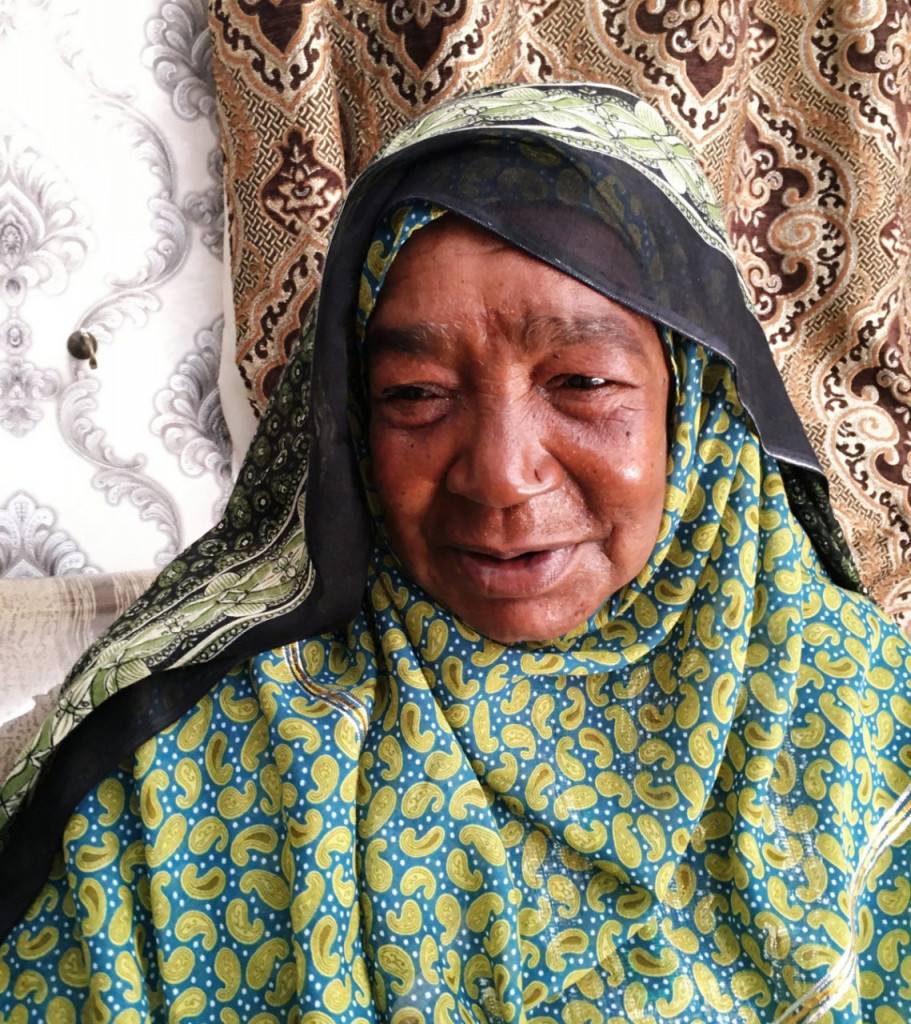
Hamama Al-Abd Al-Jaradiyah
Most people who live in the Maragha area in Wilayat Musannah (*) would quite often wonder how Hamama Al-Abd Al-Jaradiyah always managed to find wood from even the unlikeliest of places. When other wood collectors often came back empty handed after they scoured area after area for firewood, Hamama Al-Jaradiyah always found some – and more. In fact, just couple of days prior to the interview with the Purple, Hamama had successfully managed to collect quite a good heap and she gleefully tells us that she has safely stored them away.
Knack of finding wood
Hamama not only has the knack of finding wood from different places at different times, but also knows how to use them well. Many others often find the pickings lean, but Hamama somehow weaves magic and seem to pluck them out of thin air. She uses the wood to make charcoal and sell it.
Marvelling at Hamama’s many abilities
But although she is into this wood selling and charcoal business, Hamama’s primary job was that of a helper at a school. She has been serving an Omani girls’ school for nearly four decades as a cleaner and helper. And it was the challenge to support her extended family that led her to the firewood and charcoal business.
A heart that beats for all
And if people marveled at how she found wood from deserted areas, one would really wonder how she also managed to do the near-impossible task of not just looking after her own children, but also her sister’s children as well as some other orphans. In other words, the more you learn about Hamama, the more you marvel at the extraordinary abilities of this seemingly ordinary woman. Truth is that women of such strength, resilience and gifted with a heart that beats for all are also hard to find.
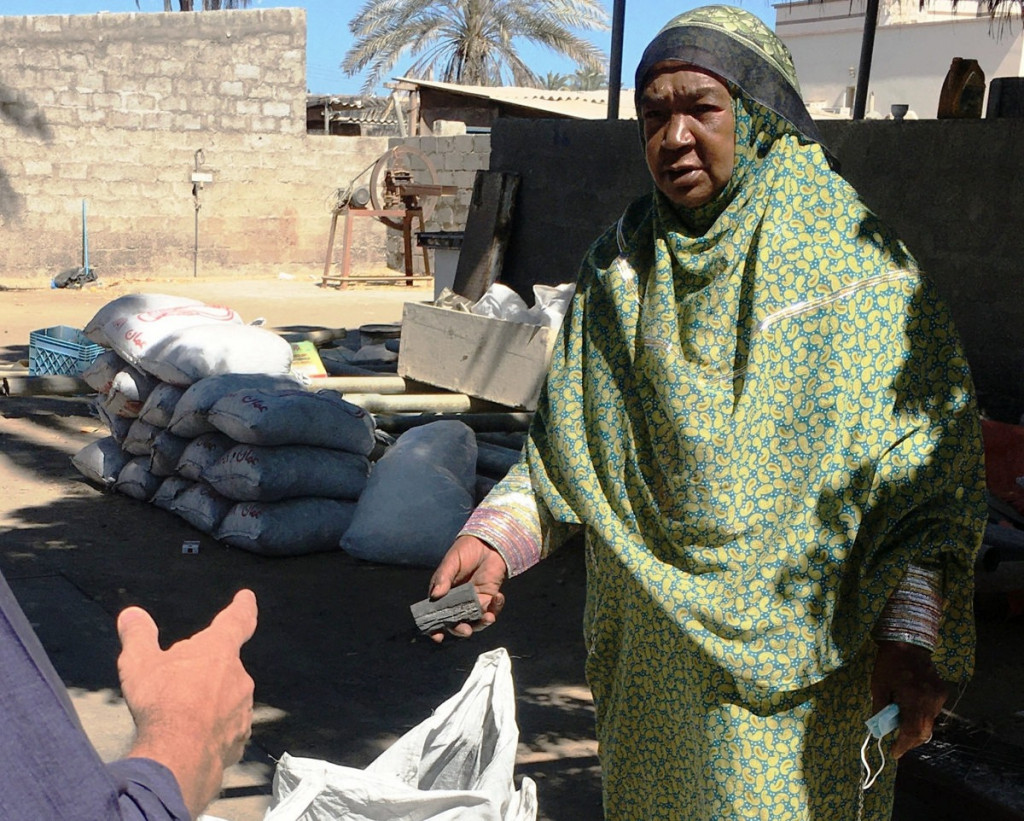
Hamama’s ‘school’ work
For most, she is an ordinary woman. For 38 years, Hamama worked as an ayah of Atika bint Abi Sufra Basic Education School for Girls, for students from fifth to 10th grade. “I have worked only for this school. Although, I was a worker at the school, I had various responsibilities. I used to engage in many tasks: cleaning the school premises and taking care of students; waiting with the students to be picked either by buses or their personal transportation and in other cases waiting on students if they are taken ill and sometimes, in case of emergencies, I would even drop students home if they had no means of transport available,” Hamama said, briefly explaining to the Purple about her activities at the school. There were four Omani workers at the school and the work usually got divided between them. “A normal working day would be between 7am until 2pm, not continuous, because we get a break in between. All those who served in the school were Omani women workers, and though my colleagues with whom I started work with have taken retirement, the school has contracted new Omani women workers from a private cleaning company,” Hamama added.
A life riddled with challenges
But if she has said all of that in a matter-of-fact manner, the fact was that life proved to be a constant challenge for her. Her husband, a cousin of hers, whom she had divorced, had died some 30 years ago. So, when that happened, all of the responsibilities weighed heavily upon her. She has four (actually had five, but one of her sons had passed away) children – three girls and a son. “Currently, five of my family members are living with me. That is, my daughter, my son, my brother and my brother’s wife and their month old baby boy. All of them are staying in my home, alongside a modest farm, which I had inherited from my grandfather.”
Responsibilities galore
“Life was full of challenges. In fact the salary would only cover our essential needs and back then I was divorced too. Soon, with the demise of their father, I had to take over all the responsibilities. And I had no choice but to search for additional work that I could do from home or outside in order to make both ends meet. “Besides that, I also found myself taking care of my immediate family and Almighty Allah had granted me many other responsibilities too.”
Trying to make both ends meet
To make both ends meet, Hamama tried all the odd jobs she could. She even tried selling fish and ice. “During those days many homes did not have any refrigerators, so that worked and I did this for three years. I also sold ropes made from palm trees and then I started selling firewood, charcoal and did some other small jobs to keep us afloat.”
Work was relief from worries
But, while many would cringe at the volume of work she undertook, for Hamama, it was also almost like an escape. “For me, work was a relief from the many worries. I could even go as far as to say that work was enjoyment. Even after 38 years of service at my school, I did not want to retire, because I liked the job, the teachers, the children, in particular the children, because I felt that I was also helping in my own way to raise them,” Hamama said, her face beaming at the thought of her beloved young students.
Life offers no guarantees
Life does not come with any guarantees, she stressed. “For example, you may be quite comfortable at home and may not even have to work, but then you never know when fate will hit you,” she warns. “All I can say is that we have to work hard. That is something we all have to realise. And as we engage in work, we must also equip ourselves with good manners, sound intention and sincerity. “Work is the only channel that provides us with a livelihood and therefore whether we like it or not, all of us, rich or poor, man or woman, have to work and work hard. And for that we need patience, and proper direction and true values. Otherwise, we fail. “You must understand that the money that we earn with our blood and sweat is truly earned. And one must also realise that when you are having money, it will give you some kind of relief, but when you don’t have any, you are lost. Also, be practical: who is going to come and give you money? “So, while it is not only our right to earn our livelihood, we must also remember to show our gratitude to the one who has made it all happen for us – let us always keep Allah in our minds and praise the Almighty for all the gifts he has showered on us!”
For her it was a university
“I am an illiterate,” she declares with a smile, but quickly adds that she has never ceased to look for opportunities to pursue all forms of education. Although she worked at the Atika bint Abi Sufra basic education school as a helper, she feels her work experience there was equivalent to a masters’ course at a university. “I had a very busy schedule as a worker at the school, because I, like the others, had very specific duties too. But, I always went beyond the duties assigned to me. Thirty-eight years is quite a long time. And for me, working at the school was also a learning process. While the students studied in their classrooms, the lessons of life were imparted to me from both within and outside the school. Although the position that I held was that of a worker, for me, there was tremendous personal growth. I grew up within the school. I learned a lot and I got to know the head teacher and the teachers – and I was also part of a major journey of change at the school. Life is a great teacher. And life at my school taught me everything that I needed to know.” Hamama’s glowing face reflected not just the simplicity in which she had approached her life, but the glow also revealed a radiant aura around her.
An inseverable, invisible alliance
“Initially, when I started there, the teaching staff was mostly Egyptian. But slowly, the situation changed and they were replaced with Omani teachers. However, we have a very warm and loving relation with the Egyptian teachers, and although they are gone, we still keep in touch with each other. Whenever there is a holiday, or some special occasion, we don’t forget to send each other warm greetings. In fact, we will never be able to forget them, and the feeling is mutual, I think,” Hamama said, looking wistfully at the pictures of the school she had worked for. There seems to be an inseverable and invisible alliance between her and her school, which neither time nor distance could break.
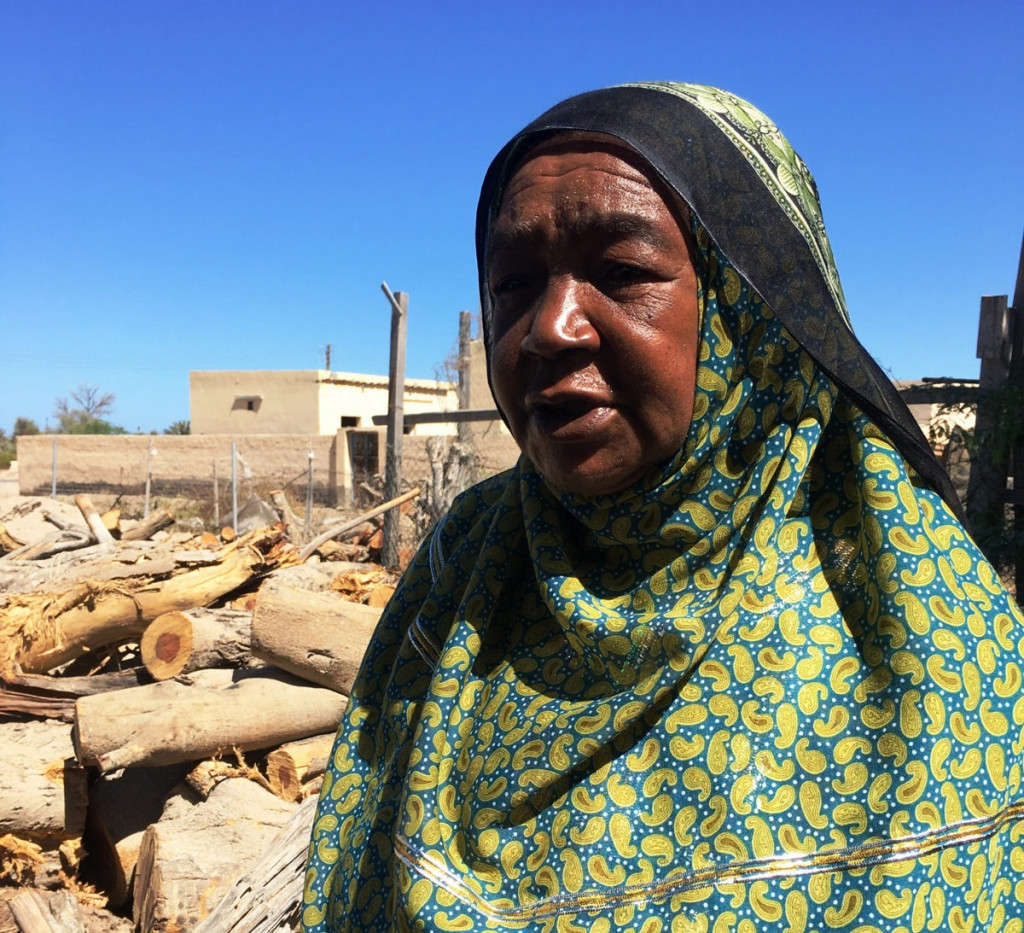
Photographic memory
Other than her enthusiasm, which was more than infectious, she also possessed an incredible memory. “Yes, I am an illiterate but Almighty Allah granted me with the gift of a strong memory. Everything that has happened to me in my life; perhaps, I might go as far as to say everything that was said to me is engraved in my memory,” she says with a certain pride. Ask her anything that happened a decade or so back and she recalls and relates it like it was just yesterday. “What is the point in having knowledge if you don’t remember what you have studied?” Hamama laughs.
Never to be a burden to anyone
There is a slight, unacknowledged skein of regret that she has not learnt to read or write, but she brushes that off: “Not being able to read or write did not tie me down, but on the contrary, and with the grace of Allah, I put my complete efforts in learning what I could, for instance, I learnt to drive. Remember this was the 80’s and having independent transport (a pick-up) was indeed a boon.It was also very handy for me and although it added extra responsibilities on me on the school front, I enjoyed it. Also, like financial independence, I always wanted to be an independent woman and never be dependent or be a burden to anyone – at least in that respect, God fulfilled my wishes. To be totally independent and be a burden to none is her true motto in life. In fact, this is one of the reasons that she began her home-based wood selling and charcoal business.
Life’s lessons well learnt
“Life’s lessons are always embedded in us than any other lessons and what I have learnt is that Allah blesses each one of us with different gifts. And that is how I was able to pursue diverse paths. I had my own gifts: I used to get ideas out of thin air and that is how I began the charcoal business. I learnt how to churn out charcoal from wood and for the last 19 years, I have been in the business of firewood and charcoal,” Hamama said.
The business of charcoal
She would go about collecting firewood, either alone or with her children. “We used to collect from Musannah and also neighbouring areas. Our target was basically dried branches and dead trees. After collection, we clean the wood and store it.“Selling firewood is not a bad job at all. There is reasonable demand for firewood for cooking purposes and also for barbecues. We also make and manufacture charcoal from the firewood,” Hamama said.“For charcoal, firewood is processed in a special way called smelting or simply burning. We burn the firewood in a special oven, which is a large hole made of bricks. And the firewood is stacked, arranged in the pit and burned. After burning, it is charred automatically and ventilated. It is then left alone for four to five days, after which the charcoal is cleaned and packed into bags to be sold.“Currently, I have stopped manufacturing charcoal at home due to some new regulations in terms of charcoal manufacturing. But, I continue to sell charcoal as I source the supplies locally and I resell it ensuring selling quality charcoal as I clean them again and fill them in sacks. I am still continuing with sale of the firewood,” she happily noted.
Chicken and eggs business
In addition to this, she also did try selling sheep. But she couldn’t pursue it for long. “We have sheep for home use and three years ago I started exploring the poultry business and focused on selling eggs. We are blessed because now we have a good number of chickens whereby we sell eggs and also use them for our consumption.”
Took all of them under her wings
From schoolwork to the charcoal business, we now come to the most important part of Hamama’s life. Despite the multitudinous challenges before her, this lady had no qualms in looking after — or rather to use a more appropriate term, taking under her wings — her sister’s children too, other than her own. And that is not all. “Yes, I took care of my sister’s six children. My sister’s husband had passed away and my dear nieces and nephews were between ages of one to 13. “Though they owned a house, I deeply felt the distress in my sister’s heart when her husband passed away. Poor girl, she was jobless too. I couldn’t bear the thought of letting her fend alone with an almost uphill task of caring for herself and her young children. “I wanted to make sure that they did not lack any necessities and their health and well being was of a major concern to me.“Despite being an illiterate, I used to check on the kids’ educational progress and I was the one following with up their teachers and their school on all school-related matters.“I used to even attend the parent-teachers meetings.” Her eyes twinkled as she recalled those fond memories of the exciting roles she played.
For a quarter of a century…
She looked after them in this manner for 25 years. “Yes, 25 years passed just like that. Today, my nieces and nephews have found work and are now able to take care of themselves,” Hamama proudly noted.Besides this, she also took responsibility for the care of her stepchildren. “These were the children of my husband from another marriage. There were three boys.After their father passed away, and when their mother remarried, there was a request for them to stay with us at our home. And I couldn’t say no.
Life is all about sharing and caring
This is also something that I taught my own children. This is an important lesson and they have learnt it well. I taught them that whoever is in need knocked on our door, neither will we not turn them away, nor will we let them go away empty-handed. Life is all about sharing and we all can share what we have. Even if there is only one thing left, we will share it. “I am the eldest of my siblings; therefore, I am like the father and mother of the home. I always keep an ‘open house’ for the rest of my family. Or rather, my door always remains open – anyone is welcome to our home,” she said, adding that all occasions of family-related gatherings were conducted at her home.But we had questions for her. We were eager to know what made her foster her sister’s children? Was she moved by their helplessness?
Blessed to be able to serve
“I can only thank Allah for the blessings. Looking after and taking care of orphans is not an easy task, however, if we are able to do this successfully, that will be the biggest humanitarian act of our life.And in Islam it is considered to be a purely virtuous act, as it is Almighty Allah’s commandment through his Messenger Prophet Mohammed (Peace Be Upon Him). My heart is clean and my biggest concern then was to protect my step kids, my nieces and nephews who became orphans due to the loss of their fathers. For me, that was enough reason to take them under my wings. All that I hope is that my Lord graces me with His blessings, for I have done whatever I could in my own humble way, but with real and true intentions!” Hamama replied.
More and more responsibilities…
“The truth is that every family suffers a loss or death of a loved one and no one is spared of this. My own son, who passed away five years ago, left behind eight kids (my grandchildren). Although they had a home, taking care of them is part of my duty. So, I judiciously check on them and see if they need anything. My daughter-in-law does not work, so I don’t feel at ease unless I make sure that their necessities have been met. I raised my other sister’s children – seven boys and five daughters — as their father passed away. My sisters’ husband was a cousin as well, so I could not turn my back on my sister’s suffering. And I was there for them — even if it was just a simple matter of taking care of their demands and making sure that nothing was missing at her (sister’s) home.”
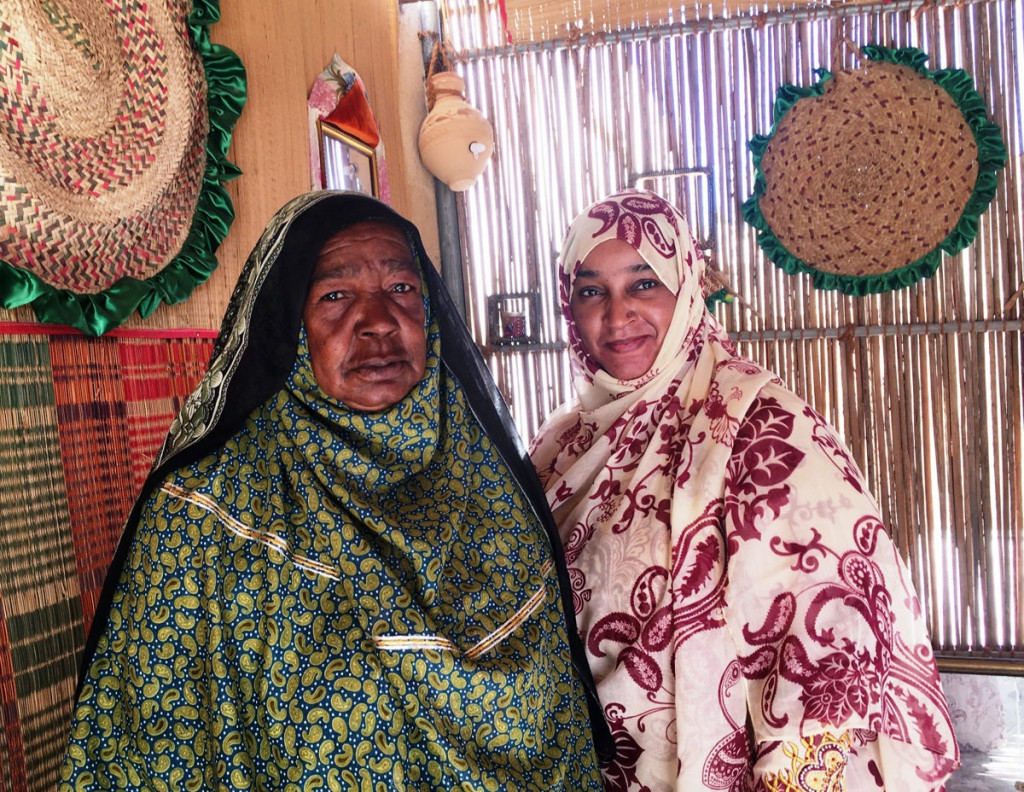
Understand the language of the heart
After listening to her amazing tale, we also felt like asking what was that which she found as the most challenging task of her life? Was it to take care of the additional children?“When we talk about caring for an orphan, what happens is that we really don’t know what is in his or her heart — and that often poses a very challenging task to the caretaker. We can’t read minds, but yes, somehow, by understanding the language of the heart we cope.
An additional blessing
“As for me I did my best to share whatever I own and I am grateful and thankful that Allah have safeguarded everyone whom I took care of. They have all grown up the right way, with impeccable manners and became men and women of sound morals and will serve the world the way they are taught to. And I am proud to say that they don’t have any complaint against me – that itself is a great blessing!”
Getting closer to Allah
Hamama has completed just over a month of her retirement. So now, this is the time when she is going to find some time for herself and also perhaps look after her needs. “I have a slight problem in one of my eyes. I have travelled to Iran for the treatment, but I have not yet fully recovered. “Now, my favourite pastime is to go to the beach and watch fishermen at work. And there I distribute water and also engage in lively conversation with them. It is very relaxing. And I also feel that if I am able to quench someone’s thirst, it would only succeed in bringing me closer to my dearest Almighty God.”
(*) Musannah is a town in Al Batinah region of northern Oman.
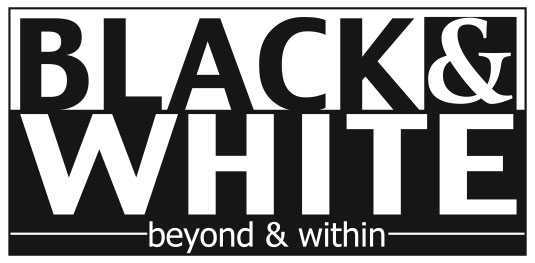
0 Comments